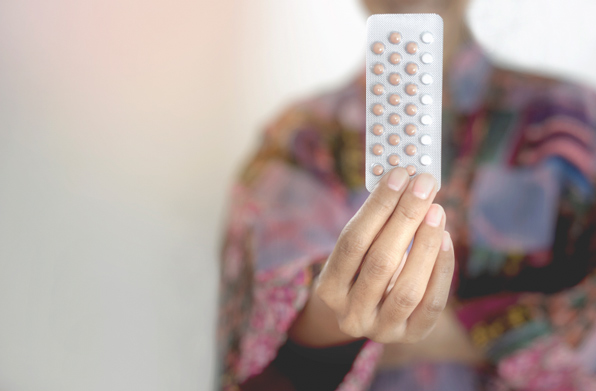Research shows that nearly one in ten women in Britain experience pain during sex. In this article we ask: Why does sex hurt?
Do you experience pain when having sex? Painful intercourse (dyspareunia) is classified as a persistent pain before, during or after penetrative sex, and can have a huge impact on a woman’s life.
“Talking about your sex life can feel embarrassing – even with your doctor or gynaecologist, but dyspareunia is more common than you may think, and it’s often caused by an issue which is easily treated.” explains Dr Alex Eskander, Consultant Gynaecologist here at The Gynae Centre.
Over the years Dr Eskander has successfully treated many patients who’ve been experiencing pain when having sex. “It’s important to understand that it’s not normal to experience pain during sex. There’s no need to suffer in silence, either; if you are experiencing persistent pain at any point during intercourse, you should see your GP or gynaecologist as soon as possible to get a diagnosis.”
Is painful sex normal?
The answer to this question is firm no. It is not normal to experience pain during intercourse. The sad fact of the matter is that many women do experience this and have resigned themselves to believing that they will not enjoy sex again. Thankfully, treatment is usually quick, simple and effective.
Why does sex hurt?
Dyspareunia can happen for a variety of reasons, ranging from physical to psychological concerns. Treatment involves getting to the heart of the problem, getting a swift diagnosis and being treated effectively so you can go back to enjoying your sex life.
Signs of dyspareunia include (but are not limited to):
- Pain at the point of penetration
- Pain in the vagina or deeper in the pelvis area during penetration
- Burning pain
- Aching pain
- Throbbing pain
Causes of painful intercourse (Dyspareunia)
- Vaginismus: Vaginismus makes sex painful due to involuntary contraction of the muscles around the vagina, making it difficult to have any kind of penetrative sex – or in extreme cases, to insert tampons. Often, Botox is the only solution for those suffering with vaginismus, and it has a 90% success rate. Botox is injected into the muscles in and around the vagina to relax the muscles. Treatment also incorporates the use of dilators. You can read more about vaginismus in our article. One of Dr Eskander’s patients has written about her experience of vaginismus over at Cosmopolitan.
- Sexually Transmitted Infection (STI): Most women aren’t aware that you can experience pain during intercourse from an STI. Chlamydia, gonorrhea, herpes and also syphilis are just some of the possible culprits. Each of these STIs can have long term consequences that can affect your sex life and future fertility, but can be treated easily if discovered early. The moral of the story? If you are sexually active, have regular sexual health checks to look after your intimate health.
- Menopause: Reduced estrogen in the body can make to the tissue in your vagina becoming drier and thinner which can lead to more friction and less stretch during sex. Although lubricant can help, there are other steps you can take to make sex pleasurable again during menopause, and your GP or gynaecologist can advise.
- Thrush: Thrush (also known as candida or yeast) is a vaginal infection which is very common. Caused by an overgrowth of a fungus called candida, it can lead to itching and pain during sex. Thrush is characterised by a stinging sensation when peeing, a thick white vaginal discharge and itching/soreness around the labia. Thrush is easily treated with a course of medication and will usually clear up a few days after you start taking medication.
- Pelvic Inflammatory Disease (PID): PID can be the cause of painful sex – particularly if you are experiencing the pain and discomfort deep inside. PID is caused by an infection which inflames the organs in the pelvic region. It can be caused as a result of an STI, by infection after birth, and can be caused by an IUD if it was fitted in the presence of existing chlamydia infection. PID can lead to long term complications, preventing you from having children and increasing the risk of miscarriage and stillbirth. However, most who receive timely treatment undergo a course of antibiotics and are absolutely fine, but it’s important to get treated as soon as possible to prevent complications.
- Emotional factors: Mental and emotional wellbeing is closely linked with sex. Factors like a history of sexual abuse, stress, anxiety, and depression are just some of the things that can contribute to a lack of arousal. This, in turn, is linked to uncomfortable or painful sexual intercourse.
- Vulvodynia: Only having recently been recognised as a condition, vulvodynia is a feeling of constant pain in the vulva area but can spread to the thighs and buttocks. It is thought that the cause of vulvodynia is an issue with nerves which can be caused by vaginal thrush or damage during childbirth or surgery. Treatment varies but can include a course of antifungal treatment, antidepressant medication at very low dosage, and physiotherapy.
- Pelvic endometriosis: Endometriosis occurs due to migration of the cells lining the inside uterus to outside the uterus like the ovaries or the covering of the pelvis. This results in inflammatory reactions and scar tissue over the years which is painful to touch during intercourse.
Dyspareunia treatment
If you believe you are suffering from many of the above – or are having pain before, during or after sex that doesn’t fit any of the descriptions above, please seek advice from your GP or gynaecologist, who will be able to help.
If you would like to book a consultation with Dr Eskander or another of our consultant gynaecologists, please book your appointment online, or call us on 020 7580 8090.






